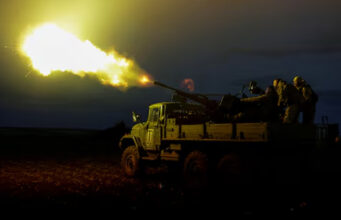
On Simply Nitin this week, we look back at a groundbreaking event: India’s strike five years ago on a jihadi camp in Balakot, in Pakistan’s northwestern province of Khyber Pakhtunkhwa. It was in retaliation for the attack on Feb 2019 in Pulwama J&K, on a bus carrying CRPF personnel in which 40 were killed.
A land-based operation was considered risky given that India had carried out a surgical strike by special forces earlier, and the Pakistanis would be prepared this time. An airstrike was deemed less risky and for this purpose a “package” of aircraft including Mirages and Su-30MKi fighters were mobilized. The attack was carried out with no loss of aircraft on the Indian side.
The lessons learnt are important here. For India, it was proof that there existed a window between a full conventional response and nuclear retaliation. India demonstrated its ability to strike a terrorist target with no collateral damage to civilians. The strike involved the use of precision, standoff weapons.
This is the paradigm for India, a far cry from its non-response following the attack on Parliament in Dec. 2001 by five gunmen, or the 26/11 attack in Mumbai by Pakistani gunmen.
Pakistan claimed that the Balakot strike underscored the point that India did not escalate since it was deterred by its nuclear weapons.
The Indian Air Force may have to review some of its protocols with its pilots. The downing of Wg. Cdr. Abhinandan’s MG-21 jet, his capture and the hoopla that followed could have been avoided perhaps. It did take away some of the sheen of India’s strike. Not to forget the downing of an air force helicopter in a “friendly fire” incident.
The US was neutral, working the phones in Delhi and Rawalpindi/Islamabad to ensure things didn’t get out of hand. But the view in Washington is that India and Pakistan are willing to use military force in the event of a grave provocation. The US appreciated India’s use of the words “non-military pre-emptive action” to describe the Balakot strike, a clear signal that it was not interested in escalating the matter.
No Pakistani military installation was attacked, no civilian areas were hit. Interestingly, even Pakistan, when describing its retaliatory airstrikes, said these focused on non-military targets and no civilian lives were lost.
Tune in for these and other details on Simply Nitin.















